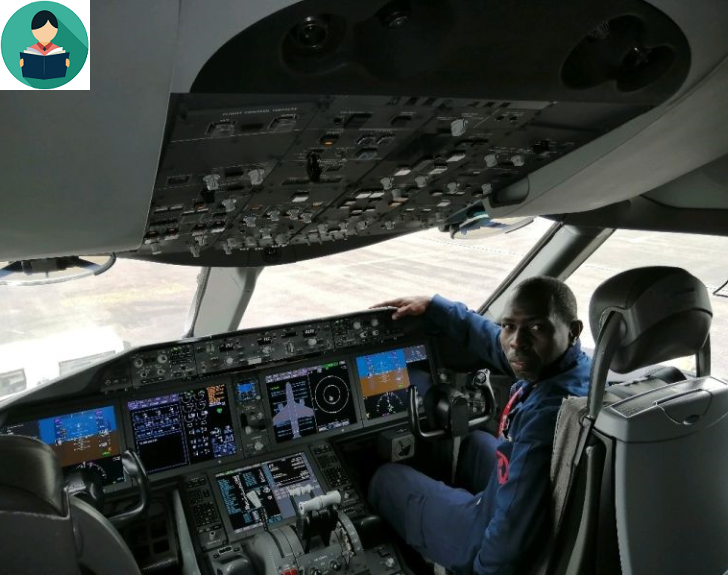Kenya, with its population of over 51 million, has over ten (10) flight schools and a large number of airlines including its flag carrier - Kenya Airways. The country is known for its classic savanna safaris, scenic landscapes, and vast wildlife preserves that attract tourists from all over the world. Since the past years, Kenya's aviation industry continues to boost the country's economy generating over 400,000 jobs.
One of the main questions Aviationfly.com receives is How to become a Pilot in Kenya. Hence, we've created the below Step by Step Guide to assist aspiring pilots.
Step 1. Research
Research the different options you have to become a Pilot in Kenya. Start by researching online through Aviationfly.com, Google, YouTube, Kenyan Civil Aviation Authority, Facebook Pilot Groups, and others. The more research you do initially, the more you will know all your options and the process of how to become a pilot in Kenya.
Different Pilot Training Options
- Flight School: Take your flight training with a Flight School in Kenya or abroad (if you want to learn more about the options of doing your flight training abroad in countries such as the United States which is very popular with students from Kenya, please send us a message).
- Aviation-related College Degree Program: This allows you to combine a college degree with flight training.
- Airline Cadet Pilot Program: These are flight training programs which include guaranteed employment with the airline upon successful graduation (and some of these programs are sponsored by the airline).
- Join the Military (Kenya Air Force): Get your flight training sponsored by joining the Military - you will have to stay with the Military for around 12 years after completing your training before you are allowed to apply to commercial airlines.
Step 2. Basic Requirements
- Age: The minimum age to start your pilot training is 17 years old when you can receive a Student Pilot License and the retirement age for airline pilots actively flying is 67 years old.
- Medical Certificate: In order to start your pilot training, you will need to secure a Medical Certificate - in order to get this, it is best to speak with the Flight School you want to start with and they will help arrange it for you.
- Educational requirement: It is important to note at this point that you can get a Student Pilot License, Private Pilot License, and Commercial Pilot License with a High School Degree.
- English Proficiency: The language of Aviation internationally is English and it is recommended to meet a Level 4 English standard before receiving your Commercial Pilot License - if you are looking to improve your English, you can send us a message and we will give you tips on what courses to take.
Step 3. Training Stages
- Student Pilot License (SPL): Allows you to start your flight training.
- Private Pilot License (PPL): This license will allow you to fly solo or fly passengers or cargo but without receiving any money for it.
- Commercial Pilot License (CPL): License will allow you to earn from flying and be a paid professional pilot.
- Instrument Rating: Being Instrument Rated means that you can fly the aircraft in any weather condition (example low or zero visibility) using just the instruments.
- Multi-Engine Rating: License which allows you to fly multi-engine aircraft.
If you have any questions so far, please do send us a message or check out all the Flight Schools in Kenya.
Step 4. Career Options
- Airline Pilot for the large airlines or smaller regional ones
- Corporate or Business Aviation Pilot
- Cargo Pilot
- Charter / Air Taxi Pilot
- Flight Instructor
- Medical / Air Ambulance Pilots
- Agricultural Pilot and many more options
As an Airline Captain, you will earn around US$3,000 per month plus benefits (KES 289,000)!
Tips for picking a Flight School
- Decide on your pilot goals - what are your long-term aspirations in aviation? Do you want to become a pilot in your free time (Private Pilot License)? Do you want to fly in General Aviation (Commercial Pilot License)? Do you want to become an airline pilot (airline program)? If you want to become an airline pilot which airlines are hiring? What aircraft are the airlines receiving over the next few years? Which flight schools do the airlines usually hire from? These are critical questions you should list and get answers to when asking yourself "how will I become a Pilot".
- Determine how much you can afford to spend - different schools have different costs (due to location, number of students, aircraft type and a number of other factors), find out the reasons for the price difference. Do programs have financial assistance/loan programs? Might a part-time program work for you?
- How much free time do you have - different schools have different training schedules with some offering flexibility while others want the cadets to train full time and on campus (note that delaying flight training usually increases your training cost).
- What equipment does the flight school use - this is important from a training but even more importantly from a safety aspect. Take into consideration as well the equipment preference of airlines that will want new pilots to have trained on certain equipment. Find out what the difference is between training aircraft (both from a training and cost perspective). Aircraft age does not always relate to safety, this is dependent on the aircraft maintenance - ask the flight school in detail about their aircraft maintenance department? Safety features of the aircraft?
